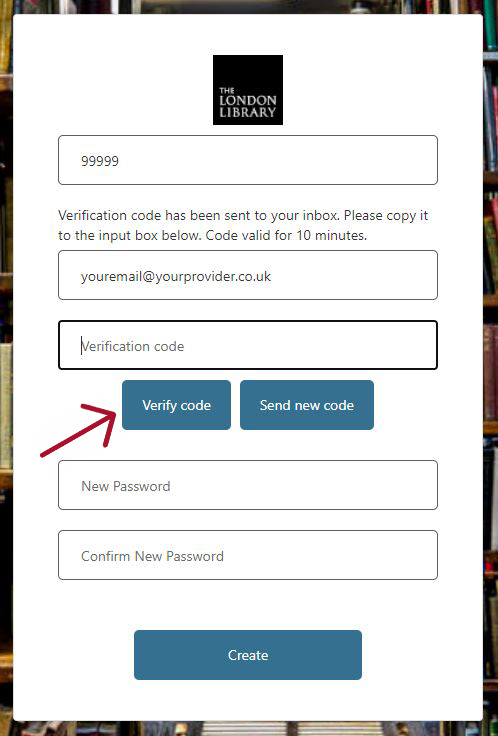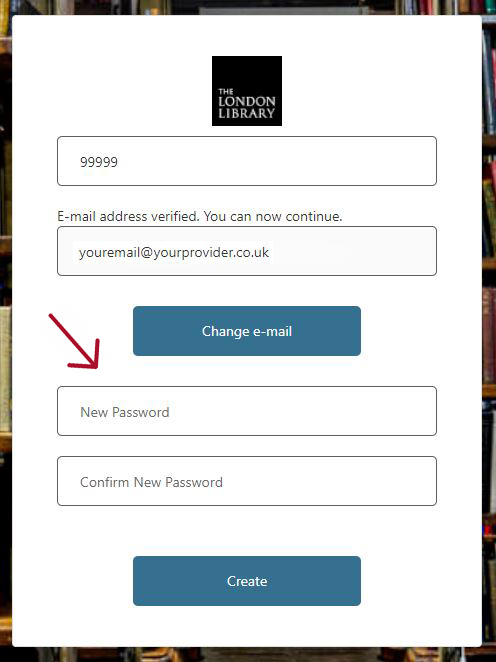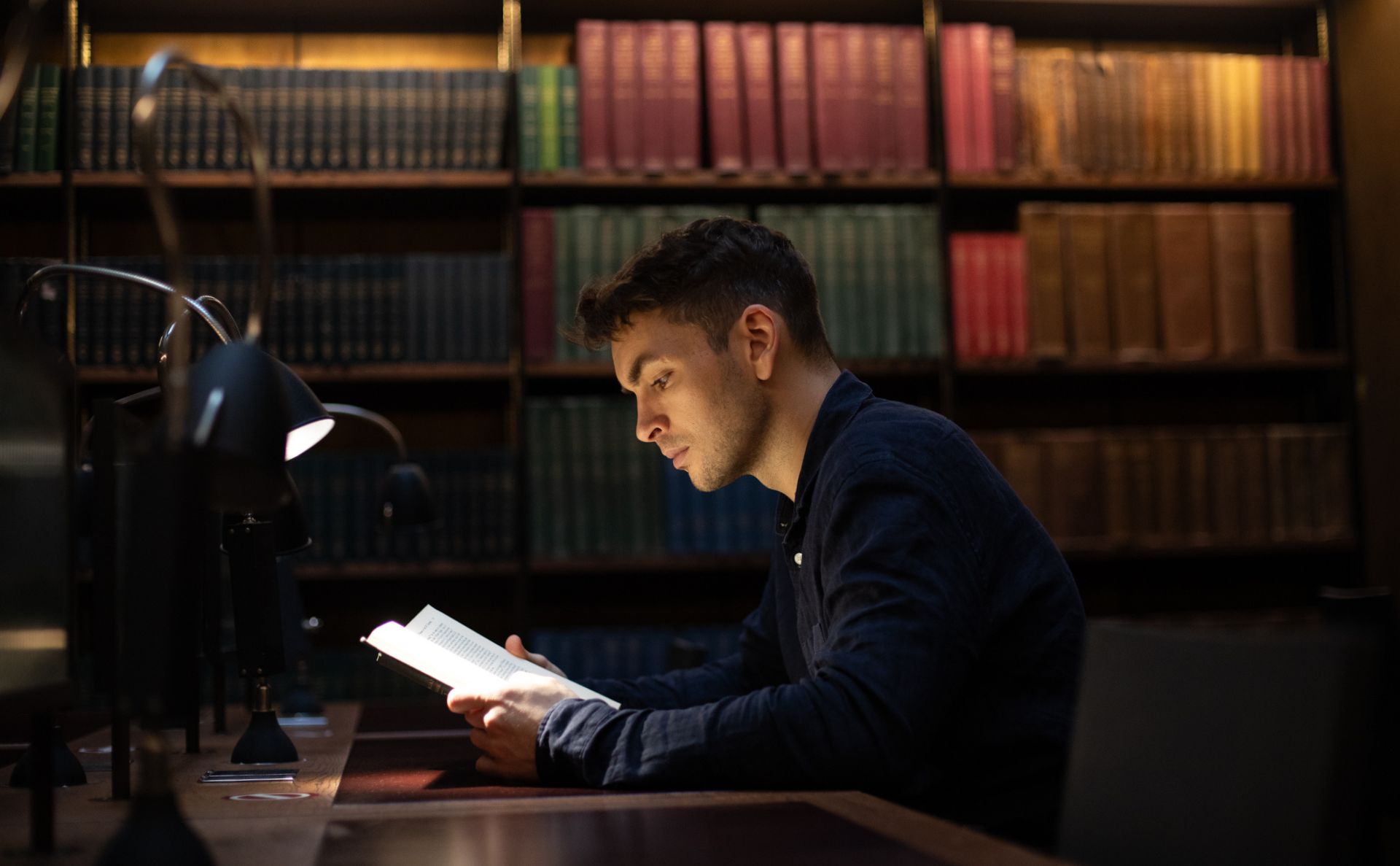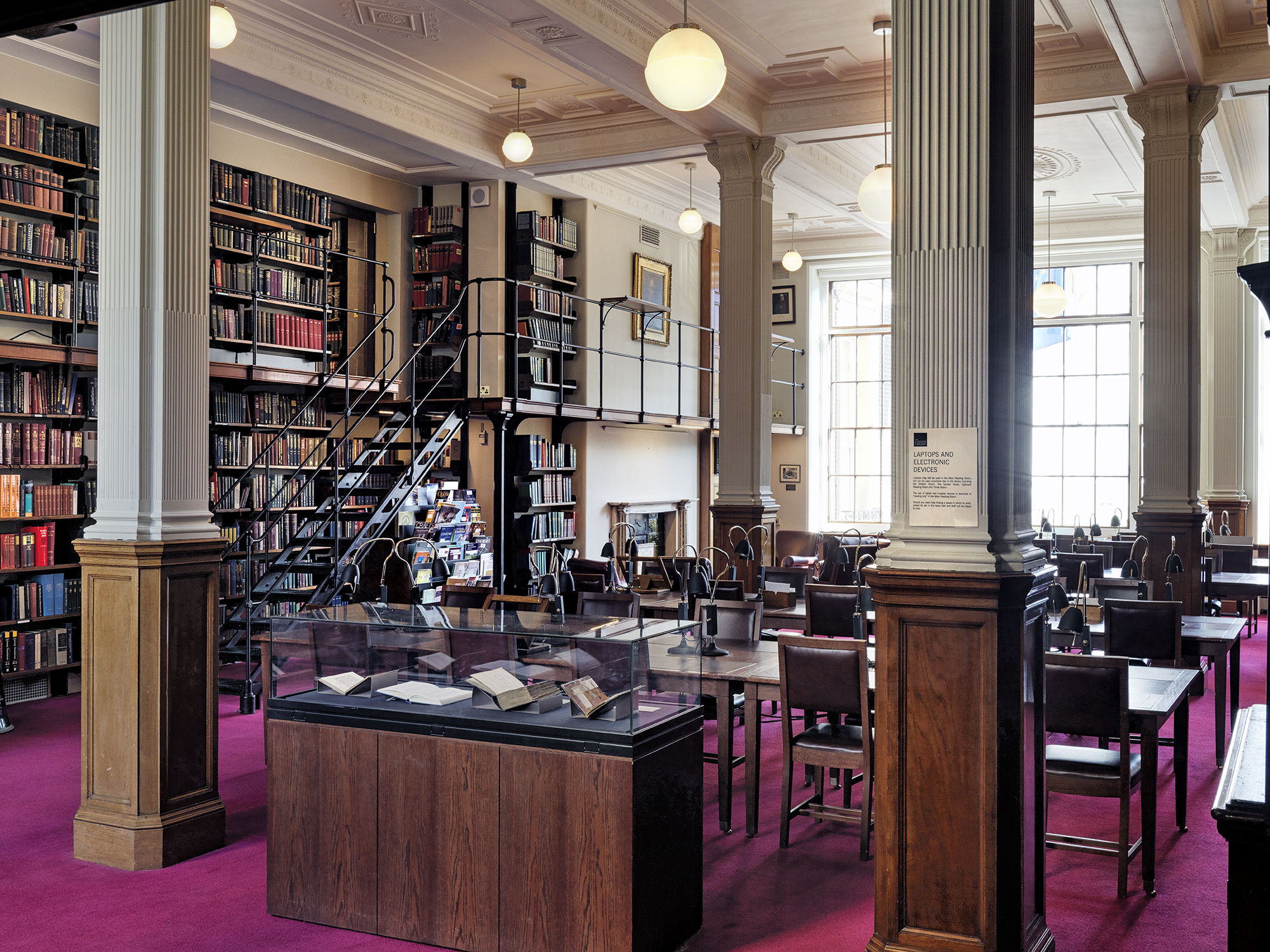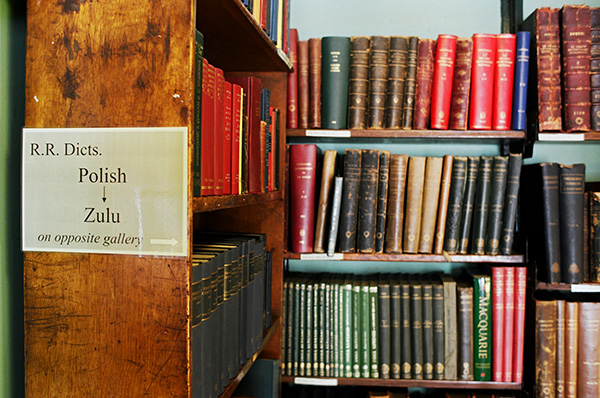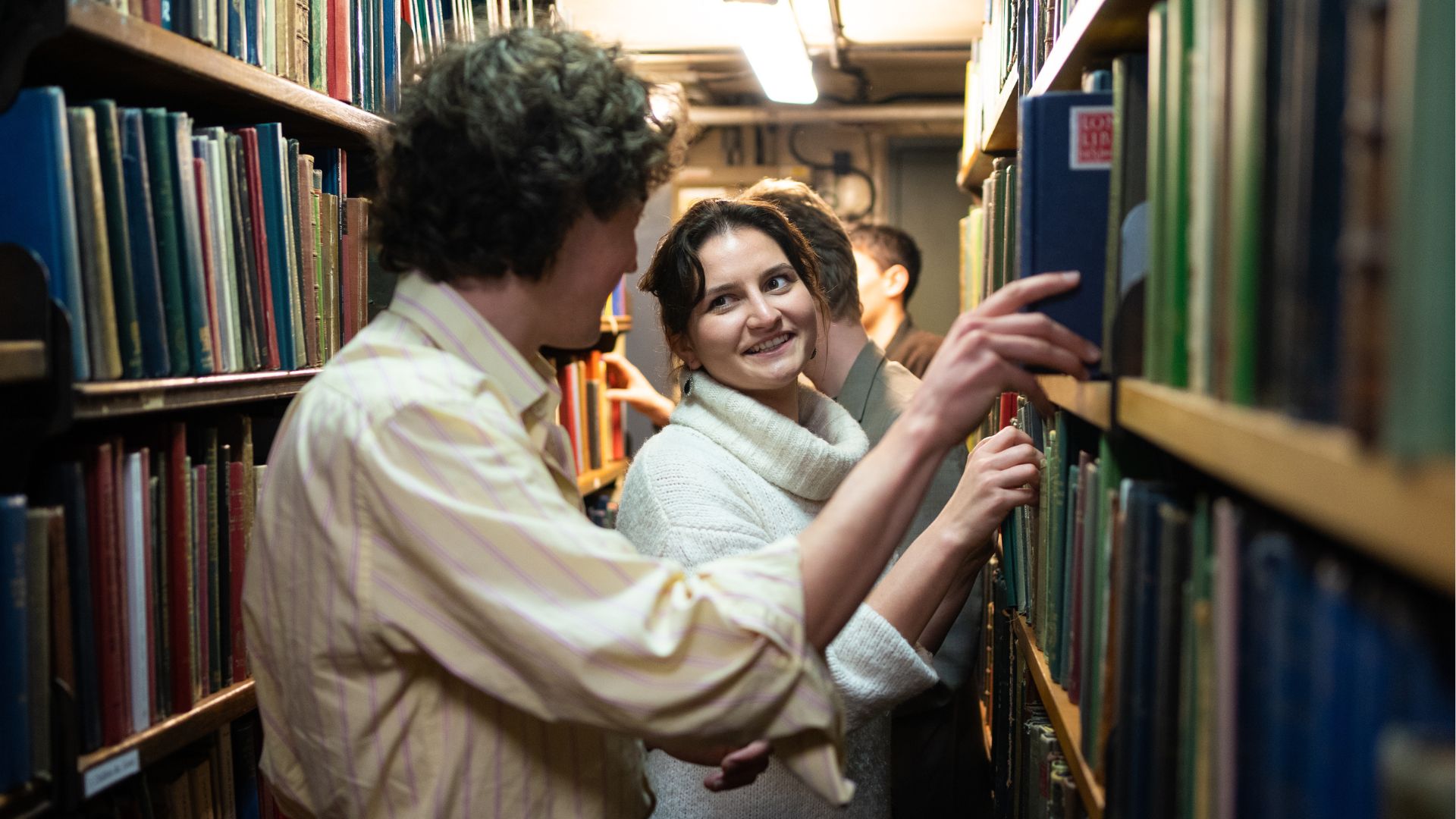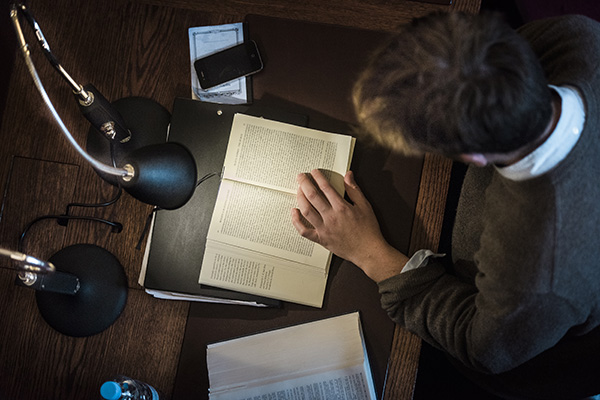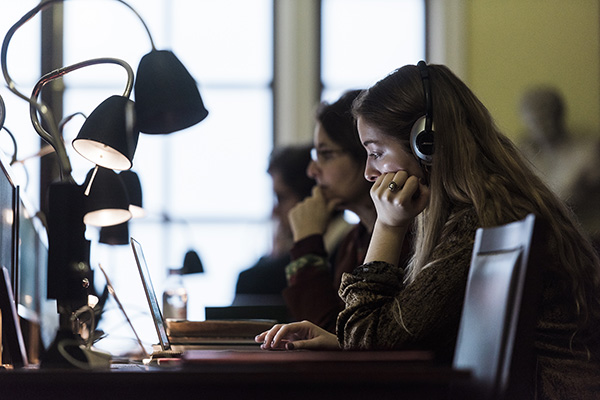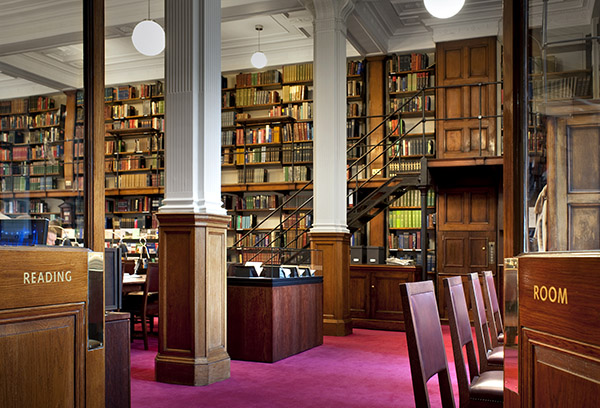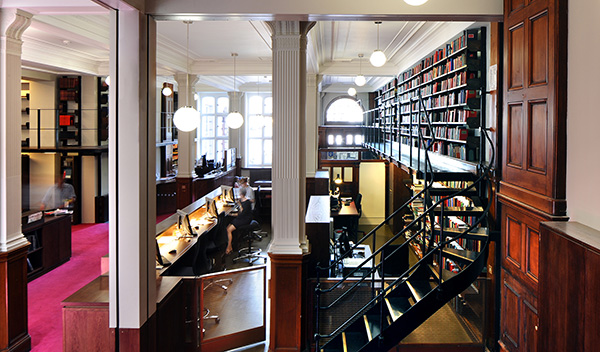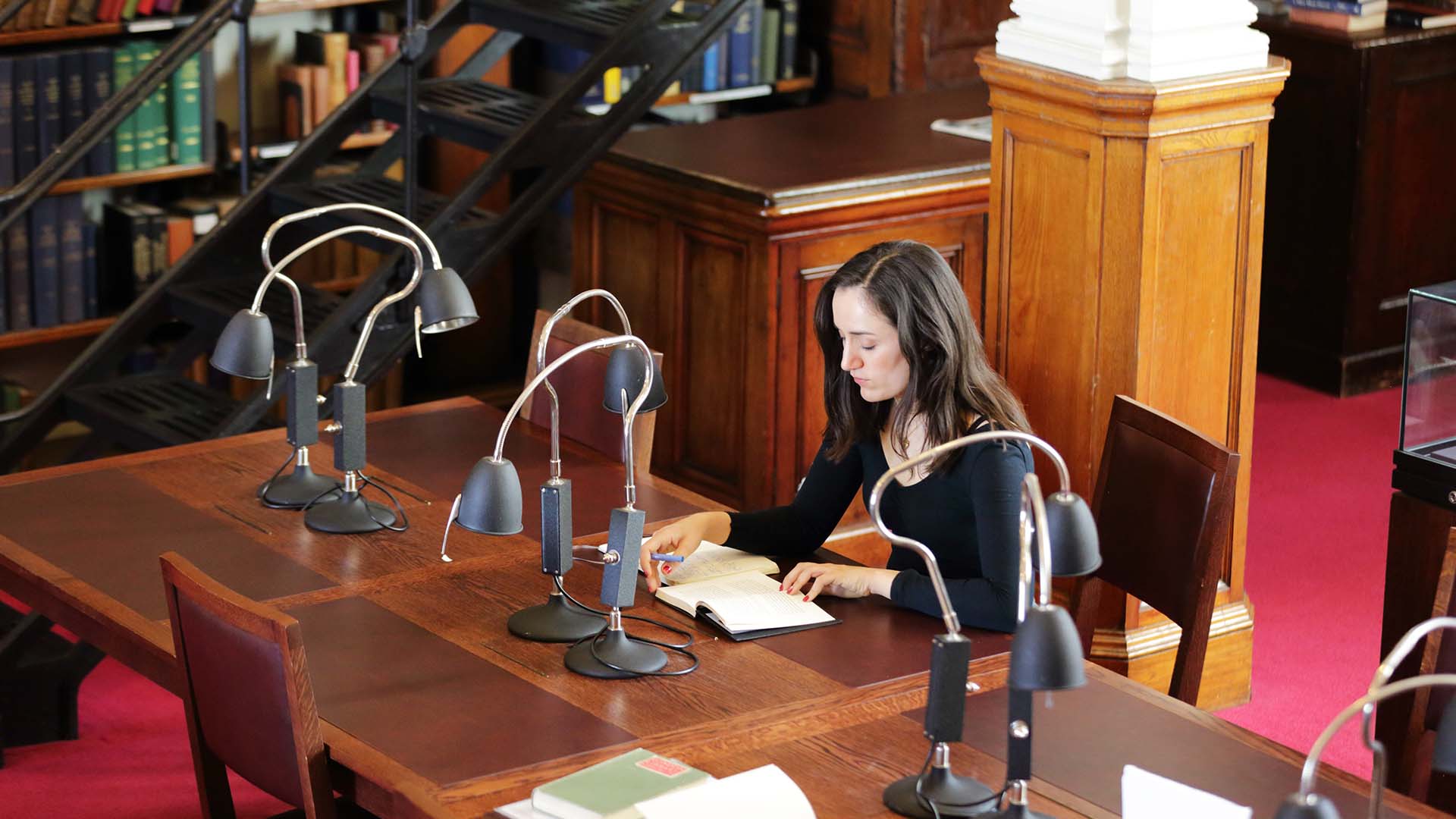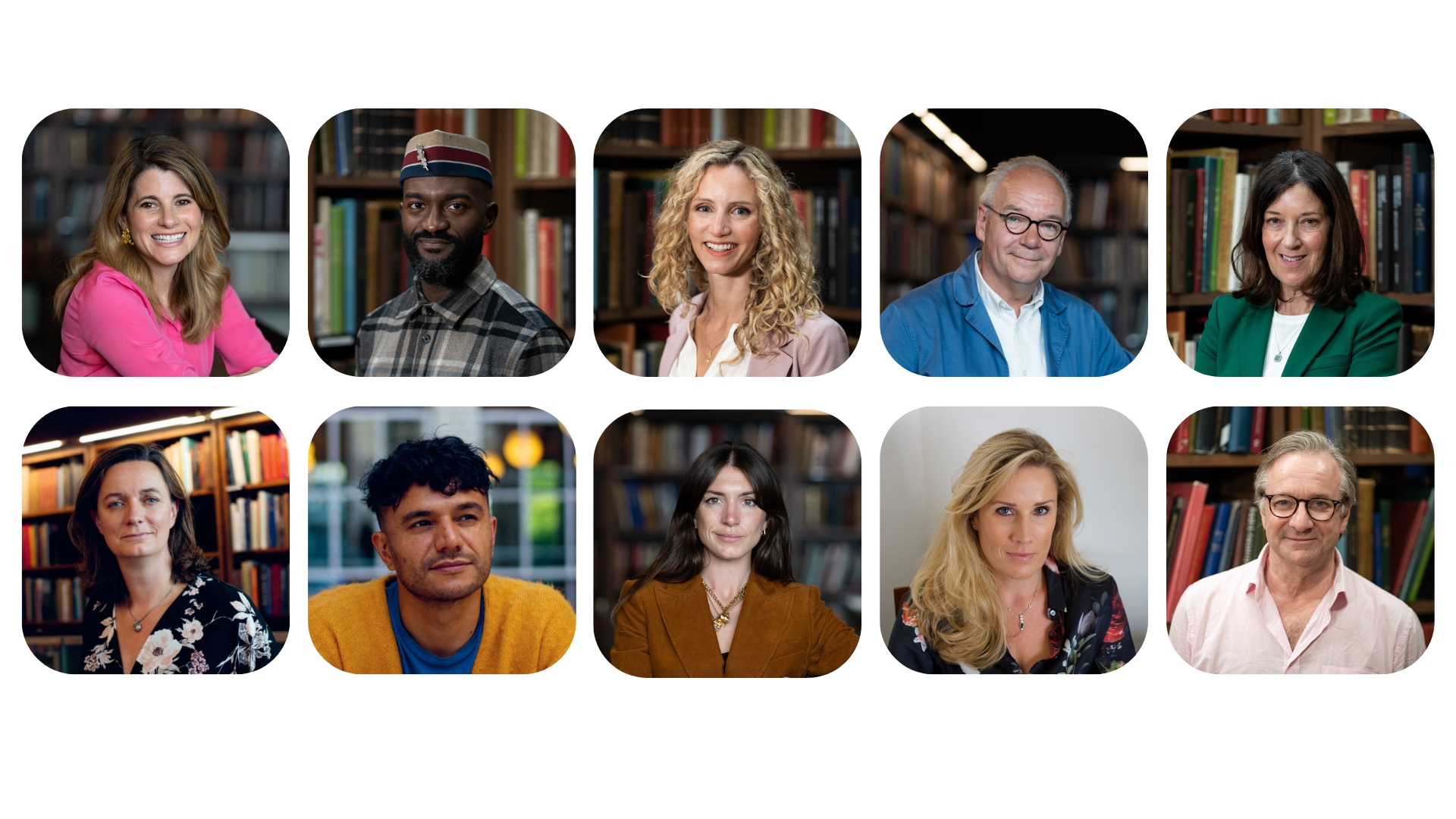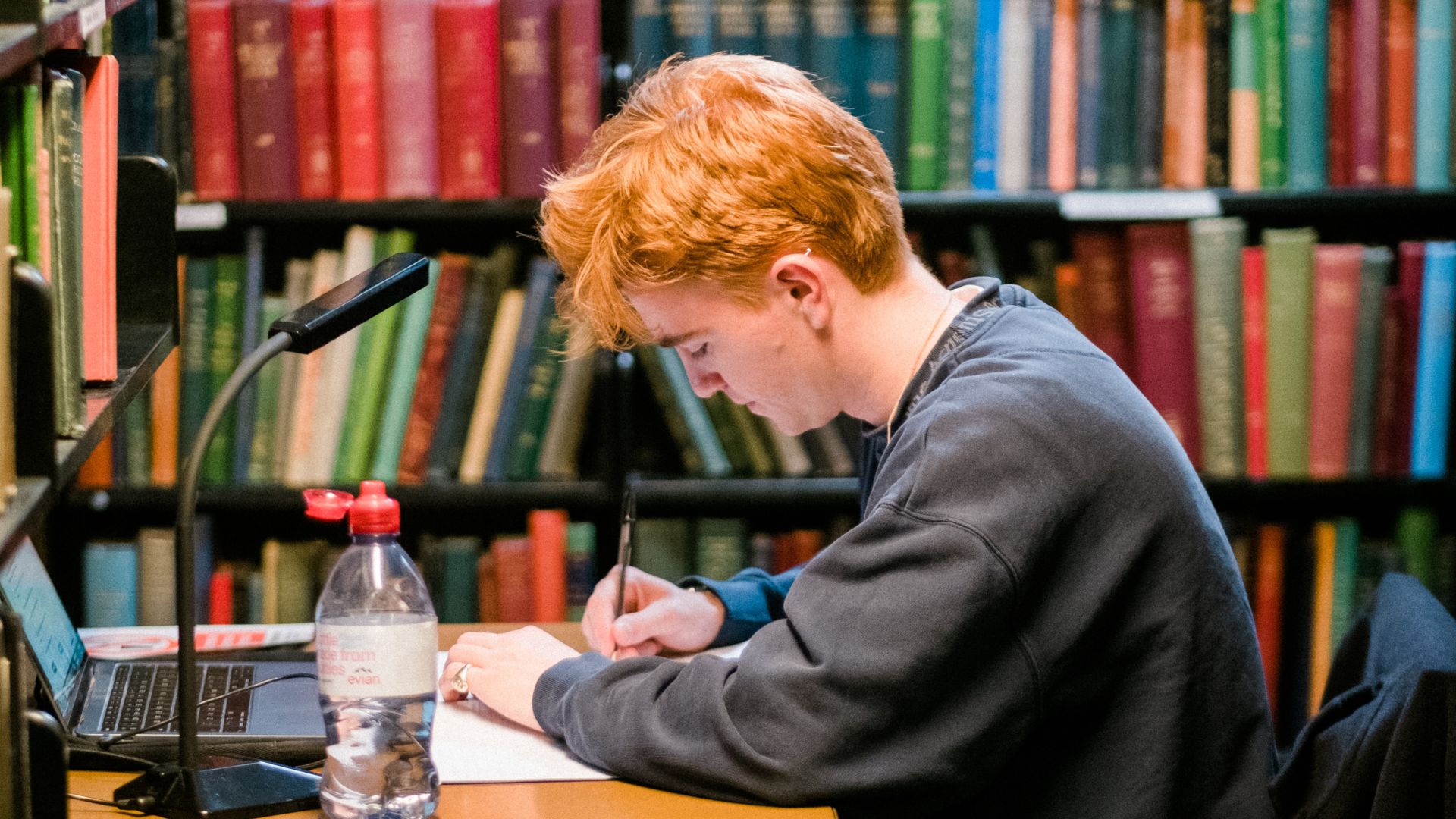The following videos will help you to use and navigate the new Catalyst system. You can also download PDF guides to assist you.
Guide to searching the print materials
Please note, if you are experience a 'Log in failed' message when you sign in please ensure you have removed any capital letters from your email address.
Navigating the Catalyst homepage
Searching for and requesting books
Searching for articles
Advanced Search
Searching Techniques
Catalyst E-Shelf
Managing your account
Frequently Asked Questions
Here you'll find a list of frequently asked questions about The London Library Emerging Writers Programme.
Please note that most of the answers to these questions can be found in the Application Guidelines on the Emerging Writers Programme webpage, and the most important things to remember are:
- Read the Application Guidelines and Eligibility Criteria carefully
- Follow the instructions on the Application Form carefully
- Do not exceed the word count in your writing sample
- Make sure your name is not on your writing sample or in your answers to the questions in Section 2 of the form.
- Please do not ask us to bend the rules for you!
- The deadline to apply is 5pm on 23 February 2026. We recommend that you do not NOT leave your application to the very last minute. Sometimes the system can rebel against too many people trying to send applications simultaneously (usually a few hours before applications close) and the application may not go through.
How do I apply to The London Library Emerging Writers Programme?
You can find a link to both the Application Guidelines and the online Application Form here.
Is there an age limit on applications?
The Programme is open to anyone of any age over 18. A question on the Application Form asks you to tick the box if you are aged 18-29 as we have one funder specifically interested in supporting those applicants, but we welcome applications from anybody 18 years old or over and there is no upper age limit.
I do not live in the UK, can I apply?
Programme participants must be resident in the UK for the entire duration of the Programme. If you are planning to move to the UK but do not currently have a UK address, please let us know within one of your statements on the Application Form. Please note, we cannot arrange or help with visas, accommodation or anything else you'd need to put in place to be here for the duration of the Programme.
I do not have an address, can I still apply?
Yes. The form requires an address but if you cannot fill this in, please contact us at This email address is being protected from spambots. You need JavaScript enabled to view it., let us know your circumstances and we will let you know what to do.
I do not live in London, is this a problem?
The Programme is open to writers living anywhere in the UK. However, applicants must be committed to attending all Emerging Writers Programme events (which include peer support meetings) at the Library. We are located within easy reach of most mainline train strations and we may be able to offer a travel bursary to enable attendance at events, allocated on a case-by-case basis. See the bottom of the Emerging Writers Programme webpage for details.
How often and what day of the week are the Programme events?
Events take place once a month and all events take place on weekday evenings. The launch will be held on the evening of 1 July 2026 and the end-of-Programme event will take place on 26 June 2027. Events are generally held from 6.30-9pm on the third Tuesday of each month. Some optional extra events may also be added to the calendar.
I have access requirements. Will that affect my ability to take part in the Programme?
No. We will work with you to make sure your requirements are met so that you can participate fully in the Programme.
What kinds of writing do you accept on the Programme?
The Programme is open to writers of any genre/form/discipline and our judging panel have expertise in multiple areas. We will be looking for a diverse range of projects, genres and writing styles when selecting the cohort of Emerging Writers.
I have applied for the Programme in previous years, can I apply again?
As long as you have not previously been given a place on the Programme, you are welcome to apply year after year. Our judging panel is different every year, which means your application is judged fresh every year.
I have previously published a poetry pamphlet. Can I still apply?
No. Please note that this is a change from previous years, introduced to ensure that writers really are emerging. Please refer to the Application Guidelines for our definition of an emerging writer, which can be found here.
Can I have previously published a picture book. Can I still apply?
No. We would consider this to be a full-length work. Please refer to the Application Guidelines for our definition of an emerging writer, which can be found here.
I have work published online/in a newspaper. Can I still apply?
Yes. Please refer to the Application Guidelines for our definition of an emerging writer, which can be found here.
I have had a play performed at a fringe theatre. Can I still apply?
Yes. Please refer to the Application Guidelines for our definition of an emerging writer, which can be found here.
I have had a short film made. Can I still apply?
Yes. Please refer to the Application Guidelines for our definition of an emerging writer, which can be found here.
I have had academic work published by an academic publisher. Can I still apply?
Yes. Please refer to the Application Guidelines for our definition of an emerging writer, which can be found here.
My short stories/poems/essays have been published in journals/anthologies. Can I still apply?
Yes. Please refer to the Application Guidelines for our definition of an emerging writer, which can be found here.
I have previously self-published. Can I apply?
Yes. Please refer to the Application Guidelines for our definition of an emerging writer, which can be found here.
I have an agent but they have not yet sold my book. Can I apply?
Yes. But please let us know if anything changes.
I am a published author but I still think I would benefit from the Programme. Can I apply?
No. Please refer to the Application Guidelines for our definition of an emerging writer, which can be found here.
I have a contract with a publisher but my book is not yet out. Can I apply?
No. Please refer to the Application Guidelines for our definition of an emerging writer, which can be found here.
My full-length play/audio drama has been commissioned by a theatre/touring company/radio station. Can I apply?
No. Please refer to the Application Guidelines for our definition of an emerging writer, which can be found here.
My feature film or TV series is in currently in development. Can I apply?
No. Please refer to the Application Guidelines for our definition of an emerging writer, which can be found here.
I have had work published before but it was a long time ago. Can I still apply?
No. Please refer to the Application Guidelines for our definition of an emerging writer, which can be found here.
I have had work published outside the UK. Can I still apply?
No. Please refer to the Application Guidelines for our definition of an emerging writer, which can be found here.
I have had work published before but it was a different genre/form to my planned project. Can I still apply?
No. Please refer to the Application Guidelines for our definition of an emerging writer, which can be found here.
The project I want to work on during the Programme is a literary translation. Can I apply?
Yes. Please do! We do not see enough translation submissions. But please make sure your submission is in English.
The project I want to work on during the Programme is a graphic novel. Can I apply?
Yes. Please do! We do not see enough graphic novel submissions. Please make sure you include the text and images in your application sample so we can judge it effectively. If your work is text heavy, please make sure your submission is within the word count. If your submission is mainly images, we recommend sending aroud 10-15 pages.
I have been writing a long time for pleasure, am I an emerging writer?
We believe you can ‘emerge’ at any time or at any age. As long as you have not had your work professionally published or produced, you are eligible. Please see the guidelines for our definition of an emerging writer here.
Can I apply with more than one writing project?
You can, as long as they are on the same Application Form. Only one application per person is permitted.
Can I include more than one sample of my writing?
Yes, as long as they are on the same document and you do not exceed the overall word count.
Can my writing sample be an excerpt from something or should it be a complete piece?
You can submit an excerpt or a complete piece, as long as you do not exceed the word count. We recommend submitting the best example of your writing from your proposed project or something that very closely relates to your proposed project.
What if I don’t have an example of work from my proposed project?
You can upload any sample of writing you like but please make sure it relates to your proposal – i.e. the same genre/form - and please make sure it does not exceed the word count. You will see in the Application Form, that if you are submitting something different to your proposed project, you can tell us a little about the piece you’ve submitted.
How should my writing sample be formatted?
Please submit your work as a Word document or PDF. Please format your writing sample in 12pt font and 1.5 or double spaced - unless you are submitting concrete poetry, graphic novel or anything similarly impossible to format in this way, in which case, please send it as it is, in a PDF and please make sure it's legible!
My script is in Final Draft. Can I submit it in that format?
No. We will not be able to open the document. Please submit it as a word document or PDF. Also, make sure you don’t leave your name anywhere on your writing sample and please note the word count of 1000 words still applies for screenwriting.
What happens if my writing sample exceeds the word count?
Your application will be disqualified if you exceed the word count.
What happens if my name appears anywhere in my answers to Section 2 of the Application Form, or on my writing sample?
Your application will be disqualified. This is to ensure the judges can judge anonymously. Please check carefully. And do not include your website or social media handles because that amounts to the same thing!
Aside from my name, what do you mean by identifying information?
Please do not include information that, with one quick Google, will lead to us working out who you are, for example, the title of any piece of your work which is in the public domain, the year you won a particular competition, the organisation you run, the role you play on TV, etc. General information, such as your nationality or the area where you live, does not count as identifying information.
What exactly are the judges looking for?
Primarily: great ideas; great writing; genuine interest in The London Library; and a clear commitment and desire to participate fully on the Programme.
Can I use the Programme to work on my PhD/MA?
In theory, yes. But please bear in mind that you will be expected to fully participate in the Programme – which includes writing development masterclasses, peer support meetings and other gatherings. If your primary interest is in Library membership, please look into the different tiers of membership available. You might also consider applying for Supported Membership. The details are here.
My primary interest in applying is membership of the Library rather than the other elements of the Programme. Should I apply?
Please do not apply if you are not interested in participating in every element of the Programme. You will be taking a place from somebody who could benefit more. You are very welcome to join the Library. If you cannot afford the full fee, you might want to consider applying for Supported Membership or we have a variety of other membership options which might be more suited to your needs or budget. All the membership type details are here.
I am already a member of The London Library, can I apply?
Yes!
I used to work at The London Library, can I apply?
Yes!
The deadline has passed. Will you still except my submission?
No. The online system will not accept submissions beyond the deadline. We receive a high volume of submissions and have a tight turnaround to get them to the judges so we are very strict about this. Please make sure you give yourself enough time to get your submission together and allow for last minute computer crashes etc.
…What if I have a really good excuse?
Even if you have a really good excuse!
When will I learn the outcome of my application?
We will let all applicants know the outcome of their application by 31 May 2026. The Programme starts on 1 July 2026.
Do you provide feedback on unsuccessful applications?
We receive a high volume of applications so we are unable to give feedback. But you are welcome to apply again next time around.
I am not eligible for the Programme. Can I still join The London Library?
The London Library is open to everyone. If you cannot afford the full fee, you might want to consider applying for Supported Membership or we have a variety of other membership options which might be more suited to your needs or budget. All the membership type details are here.
As a membership organisation we take the security of your data seriously and as such we have upgraded our systems to meet modern security standards. The legacy systems had reached end-of-life and could no longer be supported. These upgrades mean you willno longer use your membership number and PIN to log into Catalyst or our electronic resources.
From now on, in order to access the full range of electronic resources and catalogue features you will need to sign up to the new Members Sign In service. This will allow access to all of our online resources with one set of account credentials.
How to Sign Up for Catalyst
- From the London Library website, click on the Sign in to Catalyst link in the top right corner which takes you to the Registered Member's Login.
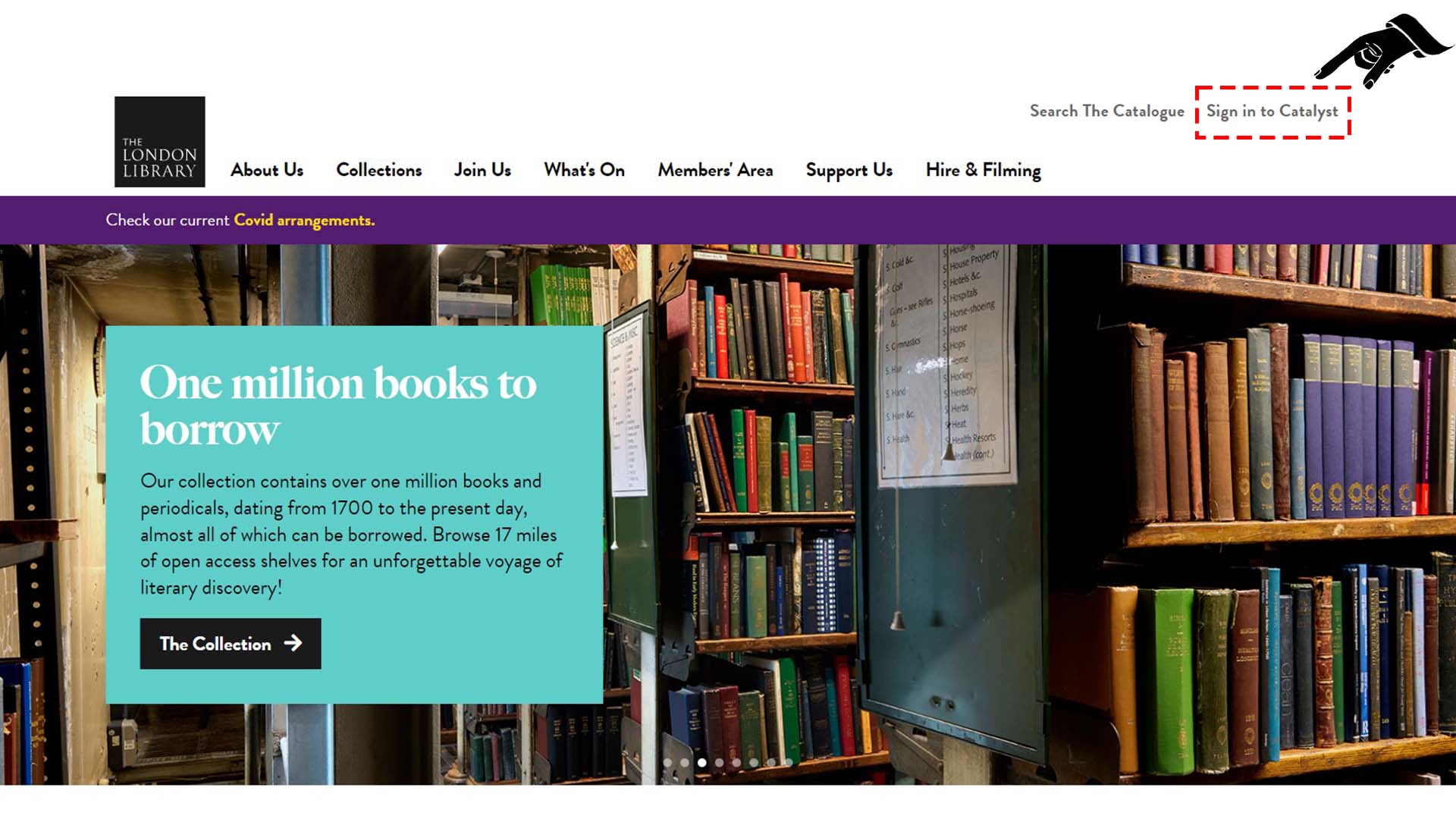
- Then click the red sign up now button
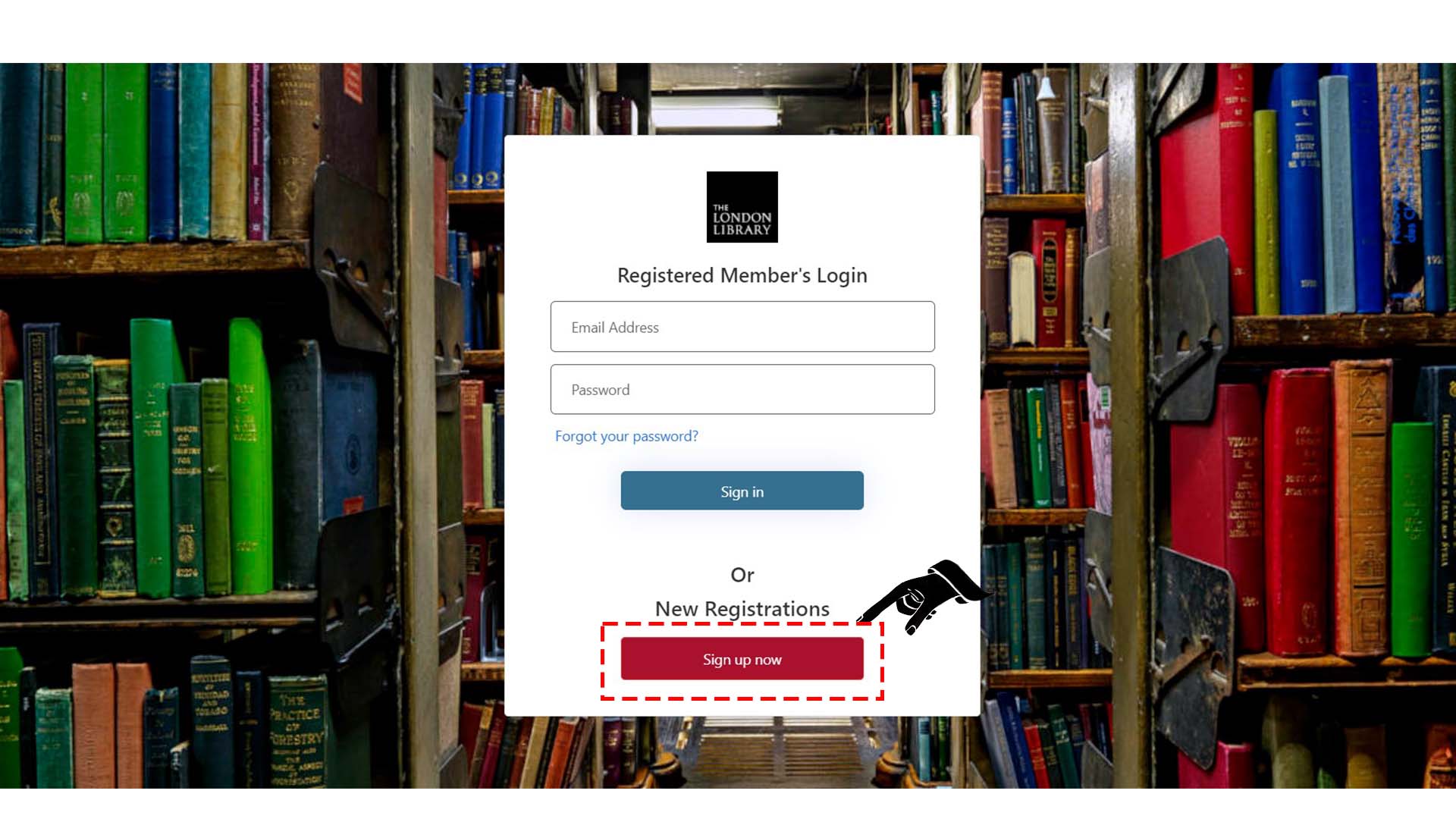
- Enter your 5-digit Membership Number (this is on your Library card) and your email address.It is important that you enter your email address using only lowercase characters.
- Institutional Representatives will need to sign up to the new single sign on service using their 5-digit membership number and the email address they registered with the Library. Once you have created a unique password you and your Nominee(s) need to use this email address and password combination to sign in on subsequent occasions.
- Then click the red send verification code button.
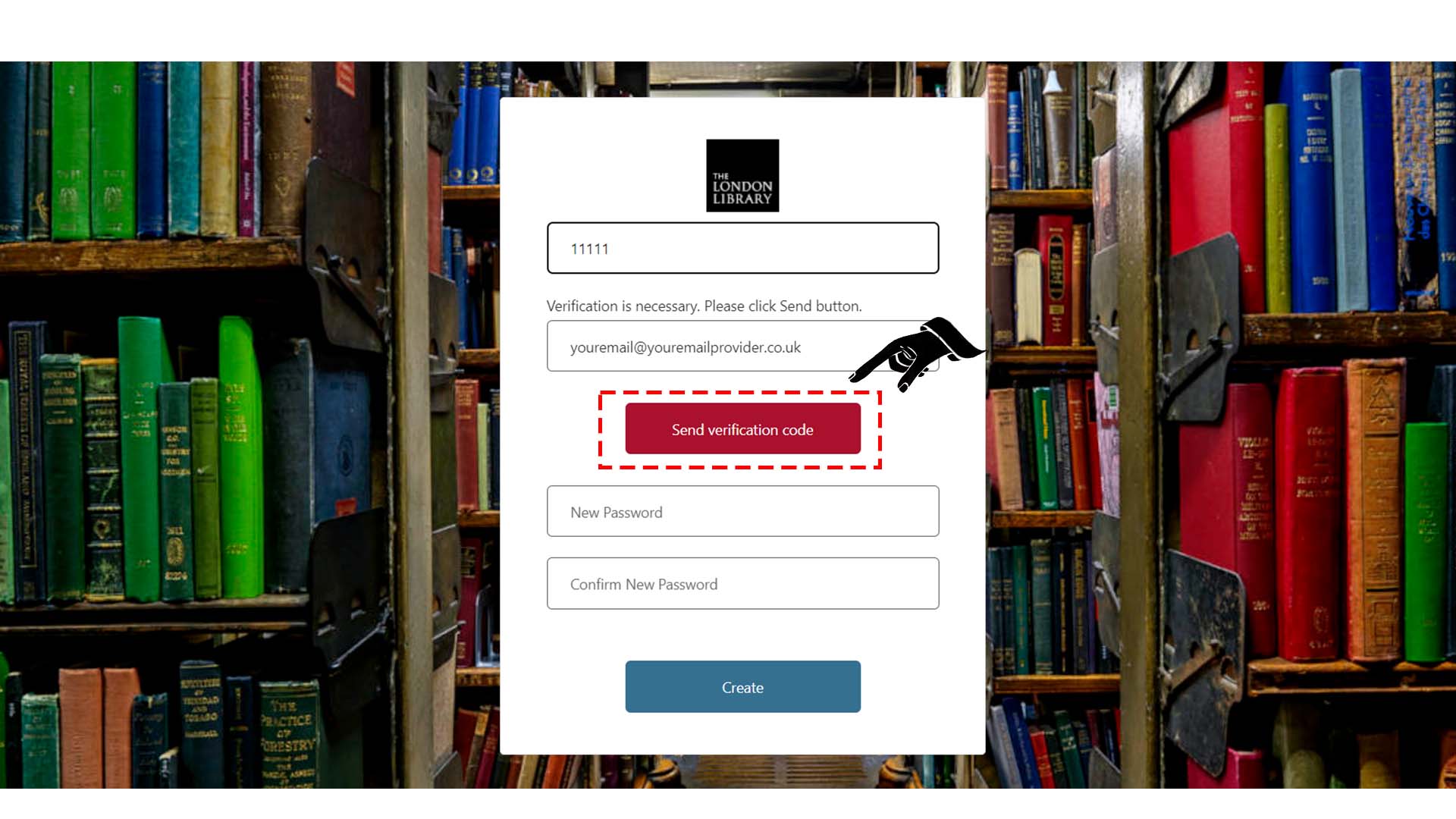
- If the email address is the same as the one recorded on your membership record you will be sent a verification code to your inbox. The code is valid for 10 minutes. If you do not use it within that time you will need to press send verification code again and enter the most recent code.
- If you cannot sign in with your gmail or ymail email address please try entering googlemail or yahoomail instead. Please note, if you experience a 'Log in failed' message please ensure you have removed any capital letters from your email address.
- If you have no email address recorded on your membership, or if you wish to update it, please contact our Membership team (020) 7766 4720 / This email address is being protected from spambots. You need JavaScript enabled to view it.
- Enter the code that was emailed to you and click verify code.
- When your code has been verified you can continue to set your own password
- This needs to be at least 8 characters in length and could take the form of a passphrase, three unlinked words that are memorable and meaningful to you but to no one else (for example, redbracketscissors). You do not need to include any numbers, capitals or punctuation unless you wish to.
- Click create
The signup is now complete and in the future you should use this email and password combination to log into the Library’s electronic services. If you forget your password, you can use the Forgot your password? option on the sign in page to reset it.
If you have any problems with the sign up process, please contact This email address is being protected from spambots. You need JavaScript enabled to view it. and we will be glad to help you.
Applications for the 2026/27 Programme are now open!
Applications are open from 11am on 6 January until 5pm on 23 February 2026.
The London Library Emerging Writers Programme, now open for the eighth year, is a unique opportunity which offers writers, in all genres and disciplines, one year’s free membership of The London Library and includes writing development masterclasses, networking opportunities, peer support, access to and guidance in using all the Library’s resources and publication in the cohort anthology. With its rich cultural heritage, extensive open access book collection, dedicated writing spaces and its diverse community of established writers, the benefits of Library membership are invaluable.
For 185 years The London Library has played a central role in inspiring writers and researchers, helping them explore and develop their work. From Charles Dickens to Sarah Waters, Charles Darwin to Simon Schama, Virginia Woolf to Kazuo lshiguro, Bram Stoker to Jessie Burton, TS Eliot to Raymond Antrobus, writers have found it to be an unrivalled resource. Previous members of The London Library Emerging Writers Programme have gone on to find agents and publishers, have had work produced for stage, screen and radio and won major literary prizes. See below for more information on previous cohorts and click here to discover their publishing success.
The London Library Emerging Writers Programme is open to anyone over 18 years of age (there is no upper age limit), who is committed to pursuing a career in writing, wants to develop their practice and has not previously had long-form work published or professionally produced. Applicants should be working, or planning to work, on a specific project, with the aim of publication or production, and have a clear idea of how they might use the Library’s resources to achieve that aim. They should be based in the UK, willing to fully participate in all elements of the Programme and immerse themselves in the writing community it offers. There is no application fee and participation on the Programme is funded.
Applicants will be selected anonymously by a panel of judges including: non-fiction writer Lamorna Ash (Dark Salt Clear, Don’t Forget We’re Here Forever); novelist and LLEWP alum Abi Daré (The Girl With the Louding Voice, And So I Roar); literary agent Elise Dillsworth; playwright, radio dramatist and children’s author Christopher William Hill (Song of the Western Man, Killing Maestros, Osbert the Avenger); poet and poetry editor Sarah Howe (Loop of Jade,Foretokens); and screenwriter and director Sam Leifer (Plebs,Call My Agent). Meet the judges here.
The Programme will launch on 1 July 2026 and run until 30 June 2027. Sessions take place on weekday evenings (from 6.30-9pm) usually on the third Tuesday of the month and alternate between peer support meetings and masterclasses, all of which are designed to work across all forms of writing. The Programme will take place at the Library and some travel/access bursaries will be available.
Applications close at 5pm on Monday 23 February 2026.
Please read through the following Application Guidelines (including eligibility requirements) carefully before you submit your application. Applications which do not follow the guidelines will not be considered.
You can find a comprehensive set of FAQs here. If you still have any questions regarding your application, please contact the Programme Team, on 0207 766 4765 or emergingwriters@londonlibrary.co.uk.
We look forward to receiving your application and good luck!
(N.B. If you are unable to access the form, please try switching off your web protect security setting.)
Programme Funding
The Emerging Writers Programme is only possible thanks to the support and partnership of donors and funders, including The Charlotte Aitken Trust, Hawthornden Foundation, Bloomsbury Publishing, Amazon Literary Partnership and The International Friends of The London Library. If you are interested in supporting the Emerging Writers Programme please contact This email address is being protected from spambots. You need JavaScript enabled to view it. or donate online.
VIEW THE 2024/25 COHORT and ANTHOLOGY
VIEW THE 2023/24 COHORT and ANTHOLOGY
VIEW THE 2022/23 COHORT and ANTHOLOGY
VIEW THE 2021/22 COHORT and ANTHOLOGY
VIEW THE 2020/21 COHORT and ANTHOLOGY
VIEW THE 2019/20 COHORT and ANTHOLOGY
Read more: The London Library Emerging Writers Programme mainpage

